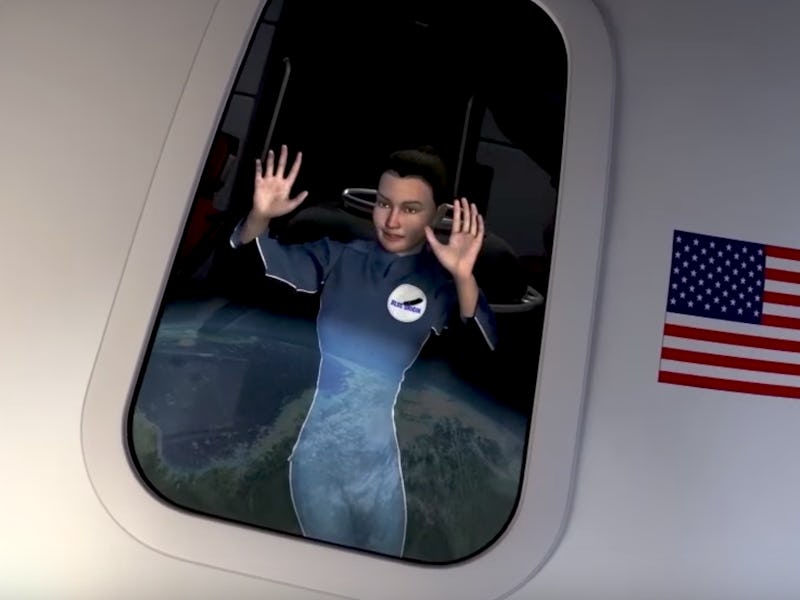Jeff Bezos, the CEO of Blue Origin, has repeatedly voiced his hopes that space tourism could be an effective avenue for testing out and advancing reusable spaceflight architecture, as a way to slash the costs of launching things out beyond Earth’s atmosphere. There’s just one problem: it’s not a very realistic plan, if you ask the former director of NASA’s Johnson Space Center, George Abbey.
Now a space policy fellow at the Baker Institute of Rice University, Abbey, when asked about Bezos’s comments on space tourism as R&D, and if testing reusable launch vehicles made sense, he told Inverse in pretty blunt terms: “No, I don’t think so.”
When it comes to his aerospace company, Bezos has kept a low profile for most of the year, but in a BBC documentary aired on Tuesday, he spoke of his desire to see a “dynamic, entrepreneurial explosion in space,” grinding that vision down to an adage every child who plays sports knows very well: practice makes perfect.
“We just don’t get enough practice,” Bezos said in The 21st Century Race For Space, referring to the inability for most space companies to launch at very high frequencies. “The most used launch vehicles fly, in a good year, maybe 10 or 12 times a year, and you just never get truly great at anything you only do 10 or 12 times a year.”
Bezos believes space tourism could be the solution to this predicament and ”drive up the rate of practice” — a message whose drum he’s beat before. He thinks Blue Origin and the rest of the space industry could use space tourism as both a valuable revenue stream, as well as a method for testing out and validating reusable launch vehicles, like the company’s upcoming New Glenn orbital launch vehicle — the vital piece for allowing the company to realize those space tourism-slash-target practice ambitions.
But as Abbey — who retired in 2002 — points out, space tourism means sending human beings up into space. Very few people are going to happily buy tickets on those launches under the guise that this is part of “practice” for Blue Origin. The orbital vehicle itself might be totally safe, and so might the rocket as it heads up into orbit, but the idea that crewed missions are doubling up as trials for rocket landings and for test data is not going to sell very well to the public.
One model Blue Origin may want to pivot to is the SpaceX track. Abbey pointed to SpaceX’s work over the last several years in launching satellite payloads into space and bringing back the first-stage Falcon 9 rocket booster back to the surface in a vertical landing as a “the key to opening up space” to more parties across the world. He thinks it would be more prudent for Bezos to look instead at using uncrewed missions — ostensibly ones in which customers are paying to send things into space — as the primary avenue for testing out launch vehicles.
It’s clearly worked for SpaceX — the company successfully landed its 10th Falcon 9 rocket on Thursday, and has demonstrably slashed its launch costs because it can reuse those landed rockets.
“It may well be that that’ll bring down the cost to sending tourists up and down,” Abbey says, but it will take other sorts of missions in which the stakes are more benign in order to really pursue the kind of risky operations that can test reusable architecture out to its maximum potential. When it comes to reusability testing, “I don’t think tourism is a really major element of it.”
The chances that Bezos will move Blue Origin to a more tried-and-true method of testing, however, is probably low. The billionaire has always prided on his companies being risk-takers, and it seems he prefers his spaceflight companies that way as well.
